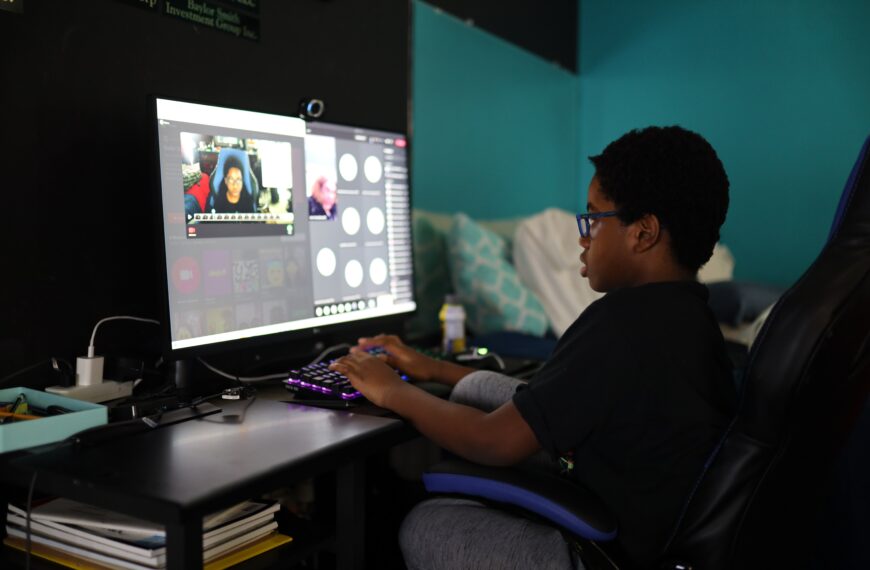In the article “Building Relationships Through Board Games,” the author emphasizes their love for board games and the belief that these games have the unique ability to cultivate genuine relationships and foster a sense of community. They highlight the introduction of The Settlers of Catan, a game that ignited the popularity of European-style strategy games in America. Moreover, the author points out the continuous growth of the board game industry, with a plethora of games being released each year. Contrary to common misconceptions, the author asserts that board games are not exclusive to children, as there exists a wide range of modern games that cater to various interests and skill levels. Through personal experience, the author highlights how board games have brought people together, resulting in lasting and memorable connections. They even go as far as gifting two-player games to married friends, firmly believing in the power of board games to strengthen relationships.

History of Board Games in America
Introduction to The Settlers of Catan
The popularity of board games in America began to rise with the introduction of a game called The Settlers of Catan. Developed by German game designer Klaus Teuber, The Settlers of Catan was first published in 1995 and quickly gained a following in the United States. It introduced many Americans to the concept of European-style strategy games, which focus on resource management and strategic decision-making.
The Rise of European-style Strategy Games
Following the success of The Settlers of Catan, European-style strategy games started to gain traction in America. These games offered a fresh and innovative approach to board gaming, diverging from the traditional roll-and-move mechanics of classic games like Monopoly. European-style strategy games emphasized complex strategies, player interaction, and unique game mechanics, appealing to a broader audience beyond the typical family-friendly board games.
Board Game Renaissance
In recent years, the board game industry has experienced a renaissance, with thousands of new games being released annually. This resurgence in popularity can be attributed to several factors, including advancements in game design, increased accessibility through online platforms, and a growing community of dedicated board game enthusiasts. This renaissance has fueled the creation of a wide variety of modern board games that cater to different interests and skill levels.
Wide Range of Modern Board Games
Appeal to Different Interests
Modern board games cater to a wide range of interests, offering themes that span from historical events and fantasy worlds to science fiction and cooperative adventures. Whether someone is passionate about building civilizations, solving mysteries, or exploring uncharted territories, there is a board game that suits their interests. This diverse selection ensures that there is a game for everyone, fostering engagement and enjoyment among players.
Appeal to Different Skill Levels
Board games today are designed to accommodate players with varying levels of experience and skill. Many games offer multiple difficulty levels or adaptable gameplay mechanics, allowing beginners to grasp the basic concepts while providing strategic depth for seasoned players. This inclusivity ensures that board games can be enjoyed by both casual gamers and enthusiasts, making them accessible to a wider audience.

Building Relationships and Community
Bringing People Together
One of the remarkable aspects of board games is their ability to bring people together. Whether it’s friends, family, or even strangers, board games provide a common ground for individuals to interact and engage in a shared experience. Sitting around a table, players have the opportunity to connect on a personal level, fostering communication, laughter, and the formation of bonds.
Creating Lasting and Memorable Experiences
Board games have the power to create lasting and memorable experiences. The joy of victory, the excitement of a close game, and the laughter shared over unexpected twists and turns all contribute to the unique moments that players remember long after the game is over. These shared experiences become stories that are retold and cherished, creating a sense of camaraderie among players.
Forming Relationships
Playing board games can lead to the formation of meaningful relationships. Through the act of playing, individuals bond over shared interests and the enjoyment of engaging gameplay. Regular board game gatherings provide a platform for players to interact regularly, fostering opportunities for friendships to grow and flourish.
Giving Board Games as Gifts
Board games make excellent gifts for friends and loved ones. They not only provide hours of entertainment but also show that the giver values the recipient’s interests and wants to share in an enjoyable experience. Giving board games as gifts not only strengthens existing relationships but can also introduce new individuals to the world of board gaming, creating opportunities for new connections and shared experiences.
Board Games as Relationship Strengtheners
Power of Board Games
Board games have a unique power to strengthen relationships. They bring people together, promote interaction, and provide a space for shared experiences. The collaborative and competitive nature of board games allows players to connect on a deeper level, fostering communication, trust, and understanding.
Enhancing Communication
Effective communication is essential for successful gameplay, and board games provide a platform to develop and enhance these communication skills. Players must express their strategies, negotiate with others, and convey their intentions, all while listening and understanding the intentions of fellow players. Through board games, individuals can practice active listening, clear expression, and cooperative problem-solving, leading to improved communication skills in other areas of life.
Promoting Cooperation and Teamwork
Many board games require players to work together towards a common goal, promoting cooperation and teamwork. Collaborative board games encourage players to strategize, share information, and make decisions collectively. By fostering a sense of shared responsibility and working towards a common objective, board games create an environment that nurtures cooperation and promotes teamwork.
Building Trust and Bonds
The competitive aspect of board games creates opportunities for players to build trust and strengthen bonds. Trust is essential when players engage in strategic alliances, negotiate deals, or rely on each other’s support. Through multiple game sessions, players develop a deeper understanding of each other’s strengths, weaknesses, and decision-making styles, further strengthening the bonds between them.
Creating Shared Experiences
Board games provide a platform for creating shared experiences among players. The memories formed during gameplay, whether through laughter, storytelling, or the joy of victory, become shared moments that foster a sense of connection. These shared experiences strengthen relationships by providing a shared history and unique narratives that players can reflect on and share with others.

Choosing the Right Board Game for Relationship Building
Consider Interests and Hobbies
When selecting a board game for relationship building, it is essential to consider the interests and hobbies of the players involved. Choosing a game that aligns with their preferences increases the likelihood of engagement and enjoyment, creating a positive and conducive environment for relationship building.
Consider Skill Levels and Complexity
It is crucial to consider the skill levels and complexity of the board game when building relationships through gameplay. Selecting a game that matches the players’ experience levels ensures that everyone can actively participate and contribute to the game. Balancing complexity allows players to experience challenges while avoiding frustration or disengagement.
Consider Game Duration
The duration of a board game is an important factor to consider when building relationships through gameplay. Shorter games may be ideal for casual social gatherings, allowing for frequent rotations and interactions among players. Longer games, on the other hand, provide opportunities for deeper strategic engagement and more extended periods of shared experiences.
Consider Player Count
Player count is another crucial aspect to consider when selecting a board game for relationship building. Some games are designed specifically for larger groups, promoting social interaction and fostering connections among multiple individuals. Other games are more suited for smaller groups, enabling deeper interactions and fostering more intimate connections.
Consider Game Mechanics
Game mechanics play a significant role in the dynamics of relationships during gameplay. Cooperative games encourage teamwork and collaboration, while competitive games may evoke excitement and friendly rivalries. When choosing a board game, it is essential to consider the preferred game mechanics that align with the desired relationship-building objectives.
Two-Player Games for Married Couples
Benefits of Two-Player Games
Two-player board games offer unique benefits for married couples seeking to strengthen their relationship through gameplay. These games provide an opportunity for quality one-on-one time, promote communication and connection, and create shared experiences that enhance the bond between partners.
Top Two-Player Games Recommendations
There are several popular two-player board games that are highly recommended for married couples. Some examples include “Patchwork,” a game about creating quilts together, “Jaipur,” a strategic trading game set in ancient India, and “Codenames: Duet,” a cooperative word association game. These games offer engaging gameplay mechanics and provide opportunities for couples to engage in friendly competition or collaborative problem-solving.
Strategies for Playing 2-Player Games
When playing two-player games as a married couple, several strategies can enhance the relationship-building experience. Engaging in open and respectful communication, practicing active listening, and embracing both victory and defeat as shared experiences can foster a positive and supportive environment. Couples can also take turns teaching and learning games, allowing both partners to feel involved and valued in the gaming experience.
Tips for Building Relationships Through Board Games
Create a Welcoming Environment
To build relationships through board games, it is essential to create a welcoming and inclusive environment. Ensure that all players feel comfortable, respected, and valued. Consider the seating arrangements, provide clear instructions or rule explanations, and encourage open communication and collaboration throughout gameplay.
Encourage Open Communication
Encouraging open communication is vital when building relationships through board games. Players should feel free to express their thoughts, strategies, and concerns, fostering authentic interactions and promoting understanding among participants. Practicing active listening and providing constructive feedback can enhance the communication experience and strengthen the bonds between players.
Emphasize Collaboration over Competition
While competition can be an exciting element of board games, emphasizing collaboration over competition can foster a more inclusive and relationship-building experience. Encourage players to work together towards a common goal, celebrate each other’s successes, and support one another through challenges. By creating a cooperative atmosphere, relationships can be nurtured and strengthened.
Be Respectful of Each Other’s Decisions
Respect is a fundamental aspect of building relationships through board games. It is essential to be respectful of each other’s decisions, strategies, and gameplay choices. Avoiding negative criticism or judgment and embracing the diversity of approaches can create a supportive environment that encourages personal growth and strengthens the bonds between players.
Take Turns Teaching and Learning Games
Taking turns teaching and learning games is an effective way to build relationships and foster mutual engagement. By actively participating in the learning process, individuals feel valued, respected, and included in the gaming experience. This approach encourages a sense of reciprocity and creates opportunities for shared experiences that strengthen relationships.
Board Games and Social Skills Development
Improving Communication Skills
Playing board games can improve communication skills by providing a platform to practice active listening, clear expression, and concise communication. Players must convey their strategies, negotiate with others, and engage in meaningful conversations, fostering effective communication habits that extend beyond the game table.
Developing Problem-Solving Abilities
Board games often present players with various challenges and problems to solve. Engaging in strategic thinking, analyzing information, and making decisions under pressure can enhance problem-solving abilities. These skills translate into real-life situations, where individuals can approach challenges with a structured and analytical mindset.
Enhancing Decision-Making Skills
Decision-making is a crucial skill developed through board games. Players must evaluate different options, assess risks and rewards, and make choices based on limited information. By regularly engaging in decision-making during gameplay, individuals can enhance their ability to make informed and effective decisions in various contexts.
Cultivating Empathy and Emotional Intelligence
Playing board games can cultivate empathy and emotional intelligence by putting players in diverse situations and perspectives. Understanding the motivations, needs, and emotions of fellow players enhances empathy and fosters emotional intelligence by promoting compassion, active listening, and adaptability. These skills contribute to healthy relationships and positive social interactions.
Organizing Board Game Events and Meetups
Finding Local Gaming Groups
To organize board game events and meetups, it is essential to find local gaming groups. Online platforms and social media can help connect individuals with like-minded board game enthusiasts in their community. Joining existing gaming groups provides opportunities for regular gameplay, networking, and forming relationships with other passionate players.
Hosting Game Nights
Hosting game nights is a fantastic way to bring people together and create a welcoming board gaming environment. By opening up one’s home or finding suitable venues, individuals can curate game nights that cater to the interests and skill levels of participants. Hosting game nights not only builds relationships but also fosters a sense of community and belonging.
Participating in Board Game Conventions
Board game conventions offer a unique opportunity to connect with fellow enthusiasts from various backgrounds. These events often feature game demos, tournaments, and social gatherings, allowing individuals to interact with designers, publishers, and other players. Participating in board game conventions can expand one’s gaming network, foster relationships with industry professionals, and provide a deeper appreciation for the hobby.
Joining Online Board Game Communities
The online board game community provides a vast network of resources for organizing and participating in board game events. Online platforms, forums, and social media groups dedicated to board gaming offer opportunities for networking, game discussions, and event coordination. By joining online board game communities, individuals can connect with a diverse range of players and access a wealth of information and support.
Conclusion
Board games possess a remarkable ability to build relationships, foster community, and create lasting and memorable experiences. From their early origins to the modern board game renaissance, these games have evolved to provide diverse gameplay experiences that cater to different interests and skill levels. By bringing people together, promoting communication and collaboration, and developing social skills, board games have the power to strengthen relationships and enhance the quality of human connection. Whether it’s enjoying two-player games as a married couple, organizing board game events, or participating in online gaming communities, the opportunities for relationship building through board games are vast. So why not grab a board game, invite some friends, and start building those meaningful connections today?








